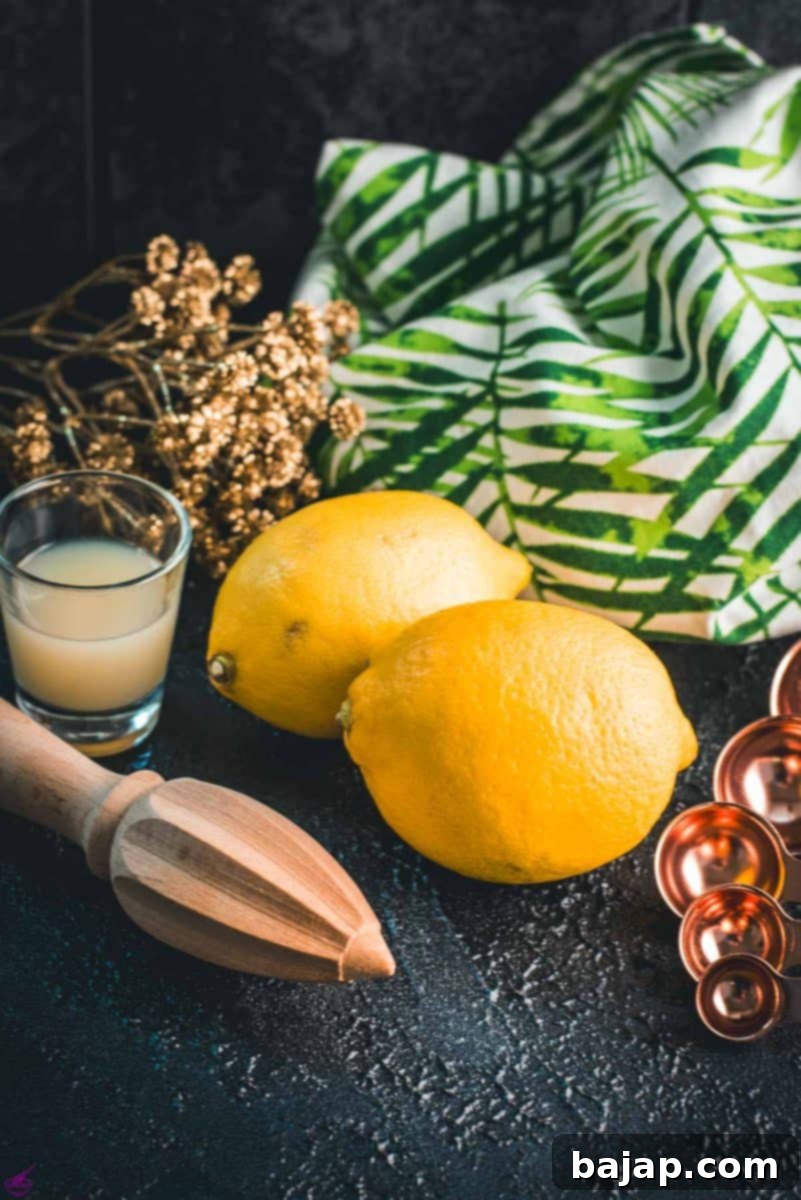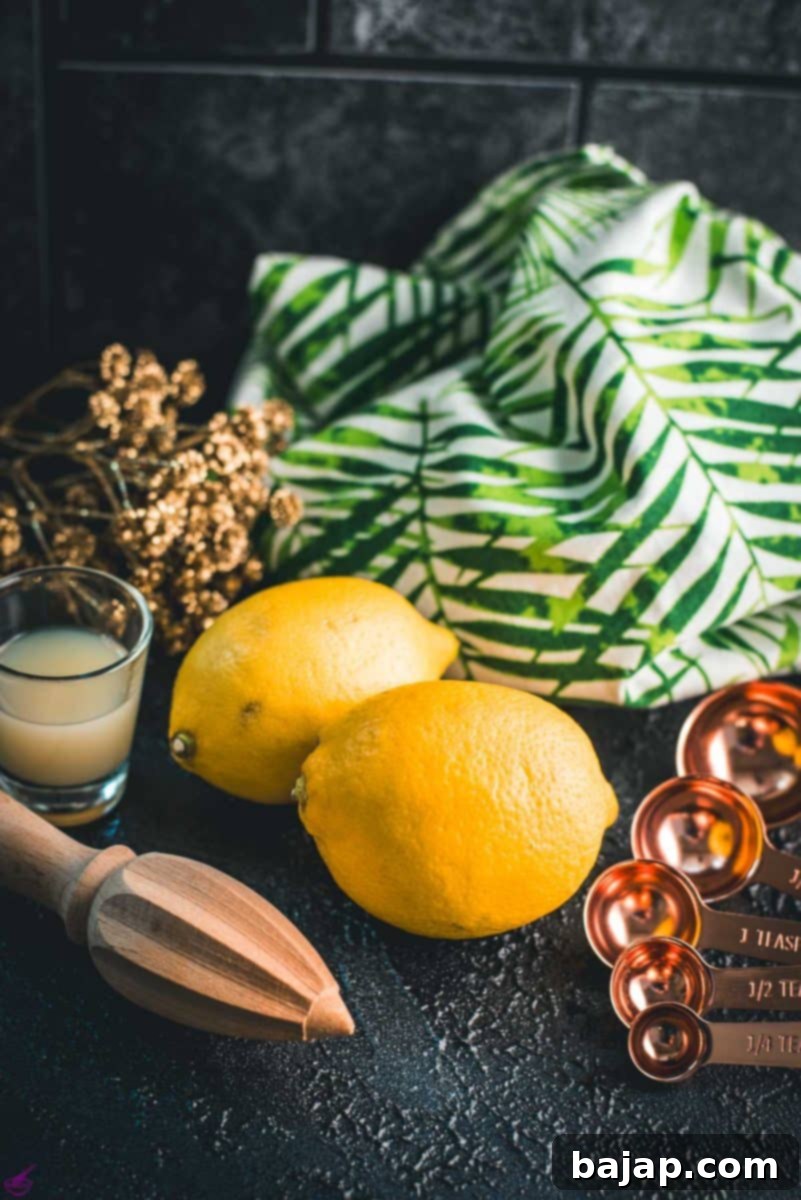Unveiling the Zest: How Much Lemon Juice is in One Lemon? A Comprehensive Guide
Lemons are truly nature’s golden gems, offering an unparalleled burst of color, flavor, and utility. From brightening up a mundane glass of water to acting as a powerful natural cleaner, their versatility in the home and kitchen is practically limitless. But for every aspiring chef, mixologist, or DIY enthusiast, a fundamental question often arises: just how much liquid gold—lemon juice—can you expect from a single lemon?
Understanding the juice yield of a lemon is more than just a culinary curiosity; it’s a practical skill that saves time, prevents food waste, and ensures your recipes turn out perfectly. Dive into this comprehensive guide as we squeeze out all the juicy details on lemons, helping you master your citrus endeavors with confidence.

The Golden Ratio: How Much Lemon Juice to Expect from a Single Lemon
Lemon juice is an indispensable ingredient for a myriad of applications, from enhancing the flavors in your favorite dishes and crafting refreshing beverages to tackling various cleaning tasks around the house. Knowing the typical juice yield per fruit is crucial for accurate recipe preparation and efficient grocery shopping, helping you avoid last-minute trips to the store or, worse, running short on a key ingredient.
On average, one fresh, medium-sized lemon typically yields about **2 to 3 tablespoons (approximately 30-45 ml) of lemon juice**. This range, however, isn’t arbitrary; it’s influenced by several factors that savvy lemon users should be aware of. Let’s break down these variables to help you predict and even maximize your lemon’s output:
Factors Influencing Lemon Juice Yield:
- Lemon Size: This is perhaps the most obvious factor.
- A **small lemon** will typically provide about 2 tablespoons (30 ml) of juice.
- An **average or medium lemon** generally yields around 2 ½ tablespoons (37 ml).
- A **large lemon** can easily give you up to 3 tablespoons (45 ml), sometimes even a little more.
- Ripeness: Perfectly ripe lemons are generally juicier. They feel slightly soft to the touch and have a vibrant yellow color. Under-ripe lemons tend to be firmer and less yielding, producing less juice.
- Variety: Different lemon varieties have varying juice contents.
- Eureka and Lisbon lemons are the most common supermarket varieties, known for their bright, tart flavor and good juice yield.
- Meyer lemons, a cross between a lemon and a mandarin orange, are sweeter, less acidic, and often have thinner skins, which can sometimes lead to slightly less juice by volume compared to a tart lemon of the same size, but they are prized for their unique flavor profile.
- Temperature: A lemon at room temperature will always yield more juice than one straight from the refrigerator. The cold causes the fruit’s membranes to stiffen, making it harder to extract liquid. Letting a lemon sit out for 20-30 minutes or microwaving it briefly (10-20 seconds) can significantly increase its juice release.
- Squeezing Method: The tool and technique you use play a big role.
- **By hand:** While possible, it’s often the least efficient.
- **Manual juicer/reamer:** These tools are much more effective at breaking down the pulp and extracting juice.
- **Electric juicer:** For large quantities, an electric juicer offers the most efficient and effortless juice extraction.
How Many Lemons Do I Need? Your Go-To Guide for Perfect Measurements
When a recipe calls for a specific amount of lemon juice, nothing compares to the bright, fresh taste of freshly squeezed. Pre-packaged lemon juice, while convenient, often lacks the vibrant aroma and nuanced flavor that only a fresh lemon can provide. However, calculating the exact number of lemons required can sometimes feel like a guessing game.
To simplify your cooking and baking projects, we’ve compiled a handy chart that translates common lemon juice measurements into the approximate number of lemons you’ll need. This will help you make informed decisions at the grocery store and in the kitchen.

Lemon Juice Conversion Chart:
| Lemon Juice Needed | Number of Lemons Needed (Approximate, based on average-sized lemons) |
| ½ Tablespoon (7.5 ml) | A Quarter of 1 Small Lemon |
| 1 Tablespoon (15 ml) | Half of 1 Small Lemon |
| 1 ½ Tablespoons (22.5 ml) | Half 1 Average Lemon |
| 2 Tablespoons (30 ml) | 1 Small Lemon or ¾ Average Lemon |
| 2 ½ Tablespoons (37 ml) | 1 Average Lemon |
| 3 Tablespoons (45 ml) | 1 Large Lemon or 1 ½ Small Lemons |
| 3 ½ Tablespoons (52.5 ml) | 1 ½ Average Lemons |
| ¼ Cup (4 Tablespoons / 60 ml) | 1 ¾ Average Lemons or 2 Small Lemons |
| ½ Cup (8 Tablespoons / 120 ml) | 3 ½ Average Lemons or 4 Small Lemons |
| ¾ Cup (12 Tablespoons / 180 ml) | 5 to 6 Average Lemons |
| 1 Cup (16 Tablespoons / 240 ml) | 7 to 8 Average Lemons |
This comprehensive table should serve as an invaluable resource, whether you’re making a single serving of lemonade or baking a large lemon meringue pie. As a general rule of thumb, it’s always wise to err on the side of caution and purchase one extra lemon than you think you’ll need. This small buffer can save you a lot of hassle if a lemon turns out to be less juicy than expected.
Tips for Maximizing Lemon Juice Extraction:
To ensure you get every last drop of juice from your lemons, consider these simple yet effective techniques:
- Roll it: Before cutting, firmly roll the lemon on a hard surface with the palm of your hand for 10-15 seconds. This breaks down the internal membranes, making it easier for juice to flow.
- Microwave it (Briefly): Pop a whole lemon in the microwave for 10-20 seconds. The gentle heat softens the fruit, allowing more juice to be released.
- Cut Crosswise: Instead of cutting the lemon lengthwise, cut it crosswise (through the middle). This exposes more of the juicy flesh, making it easier to squeeze.
- Use the Right Tool: Invest in a good quality citrus reamer or a handheld juicer. These tools are designed to efficiently extract juice and filter out seeds and pulp.
Beyond the Juice: The Multifaceted Magic of Lemons
While their juice is undeniably prized, lemons offer so much more than just liquid zest. Their vibrant flavor and numerous properties make them indispensable in various aspects of daily life.
Culinary Applications:
Lemons are a powerhouse in the kitchen, elevating countless dishes with their bright, acidic notes. From sweet to savory, their versatility knows no bounds:
- Baking and Desserts: Lemon tarts, cheesecakes, muffins, cookies, and custards all benefit from lemon juice and zest, which add a refreshing tang that cuts through richness.
- Beverages: Lemonade, hot toddies, cocktails (like the Gin Tonic with Lemon or Lavender Spritz Cocktail), and teas are invigorated by lemon’s bright flavor.
- Marinades and Dressings: Lemon juice is a fantastic tenderizer for meats and poultry, and it forms the acidic base for many vinaigrettes and salad dressings.
- Savory Dishes: A squeeze of lemon juice can brighten grilled fish, roasted vegetables, pasta, and even soups, adding a professional chef’s touch. It also prevents certain fruits and vegetables (like avocados and apples) from browning.
Health and Wellness Benefits:
Lemons aren’t just delicious; they’re also packed with goodness:
- Rich in Vitamin C: A powerful antioxidant that supports the immune system, skin health, and aids in iron absorption.
- Digestive Aid: The acidity of lemons can help stimulate digestive juices, aiding in digestion and reducing bloating.
- Antioxidant Properties: Lemons contain flavonoids that protect cells from damage caused by free radicals.
Household Uses:
Beyond the plate, lemons shine as a natural, eco-friendly solution for various household tasks:
- Cleaning: Lemon juice’s acidic properties make it an excellent natural cleaner for countertops, cutting boards, and even removing hard water stains.
- Deodorizer: The fresh scent of lemon can neutralize unpleasant odors in refrigerators, garbage disposals, and even air.
- Polishing: A mixture of lemon juice and baking soda can gently polish brass and copper, restoring their shine.
Choosing and Storing Your Lemons for Optimal Freshness and Juice
To ensure you’re always getting the best out of your lemons, knowing how to select and store them properly is key.
Selecting the Best Lemons:
- Feel for Firmness and Weight: Choose lemons that feel heavy for their size. This indicates a higher water (and thus, juice) content. They should be firm but not rock-hard.
- Check the Skin: Look for bright, uniformly colored yellow skins that are smooth and thin. Thinner-skinned lemons often contain more juice. Avoid lemons with soft spots, wrinkles, or discoloration, as these can indicate dryness or spoilage.
- Smell: A fresh lemon should have a subtle, clean citrus scent.
Storing Lemons:
- At Room Temperature: Whole lemons can be stored on the counter for about a week. This is ideal if you plan to use them soon, as room temperature lemons yield more juice.
- In the Refrigerator: For longer storage, place whole lemons in a sealed plastic bag or an airtight container in the refrigerator’s crisper drawer. They can last up to 3-4 weeks this way.
- Cut Lemons: Cover cut lemons tightly with plastic wrap and store them in the refrigerator. Use them within 2-3 days to prevent drying out and loss of flavor.
- Lemon Juice: Freshly squeezed lemon juice can be stored in an airtight container in the refrigerator for 3-4 days. For longer preservation, freeze lemon juice in ice cube trays. Once frozen, transfer the cubes to a freezer-safe bag or container, and they’ll keep for several months, ready to be thawed for your next recipe.
Conclusion: Embrace the Zestful Power of Lemons
Lemons are truly a powerhouse fruit, offering an incredible range of culinary, health, and household benefits. By understanding the typical juice yield of a single lemon and the factors that influence it, you can approach your recipes with greater precision and confidence.
Armed with the knowledge of how many lemons you need for various juice quantities and equipped with tips for maximizing juice extraction, you’re now ready to unlock the full potential of this versatile citrus. So go ahead, stock up on these sunny fruits, and let their vibrant zest and tangy juice inspire your next kitchen adventure or cleaning triumph!
Other Zesty Recipes for You to Try:
Ready to put your lemon knowledge to good use? Explore these delicious recipes that celebrate the incredible flavor of lemons:
- Gin Tonic with Lemon
- No-bake Lemon Cheesecake
- Lavender Lemon Muffins
- Lemon Sugar Cookies
- New Year’s Lemon Punch
- Lemon White Chocolate Chip Cookies
- Lavender Spritz Cocktail
- Strawberry Spritz
